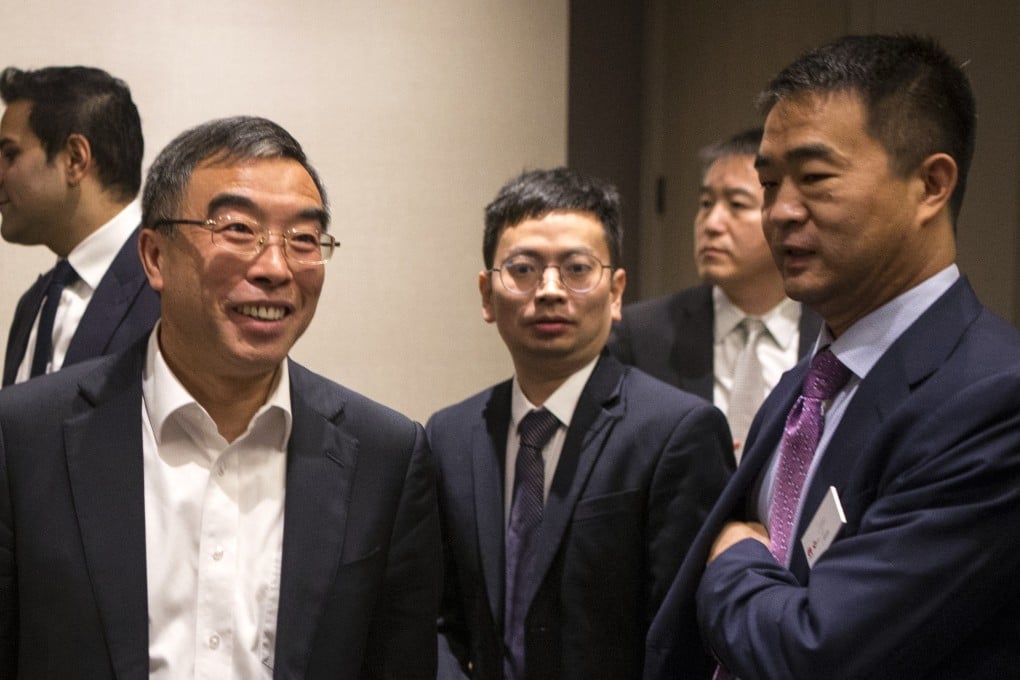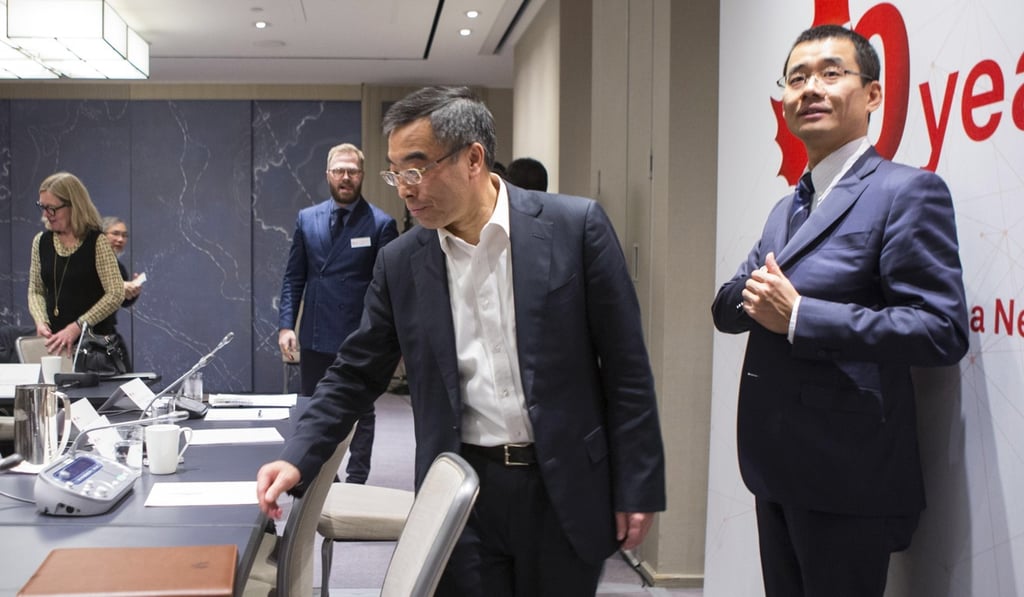Huawei would refuse if China requested ‘back doors’ into foreign wireless networks, says chairman Liang Hua
- Liang Hua says Huawei has obtained a legal opinion that it is not obliged to help the Chinese government secure ‘back doors’ into foreign telecom networks
- He said Huawei plans to expand its Canadian workforce by 20 per cent and increase research and development investment, despite arrest of Meng Wanzhou

Huawei Technologies would deny any Chinese government request to open up “back doors” in foreign telecommunications networks because they aren’t legally obliged to do so, the company’s chairman said.
Liang Hua, speaking to reporters in Toronto on Thursday, said the company had received an independent legal opinion about its obligations under Chinese law and said there is nothing forcing companies to create what he called “back doors” in networks.
This was an apparent reference to hidden access points that could potentially allow Chinese spies to access information. Western powers fear a 2017 security law could compel Chinese firms to provide such access.
But Liang said Huawei had never received any such request, but would refuse it if they did.

“We will not execute the request” because it wouldn’t be lawful, he said through a translator, stressing that he leads “an independent business organisation” aimed at serving its customers. “We have kept a good track record on cyber-security.”